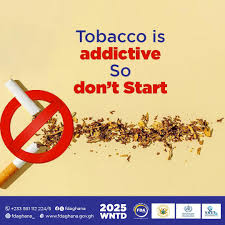As Ghana recalibrates in the aftermath of another pivotal election cycle, social media has evolved beyond a mere communication tool—it now stands as a powerful and defining force in the nation’s political arena.
According to Mussa Dankwah, Executive Director of Global InfoAnalytics, this battleground is not looking favorable for the opposition New Patriotic Party (NPP).
Dankwah, whose organization has been closely tracking voter sentiment, believes that the NPP is rapidly losing its grip on educated voters—particularly those engaged online.
“Social media is a very powerful tool that a party can use to grow its followers, but I believe NPP followers are doing just the opposite.”
“…Ample data from polls shows how the party of intellectuals has lost the intellectuals to the NDC. Voters with at least a tertiary level education have abandoned the NPP, and that is the fact.”
Mussa Dankwah
This shift, Dankwah emphasized, is both measurable and alarming—particularly for the opposition party.
He pointed to recent polling data from April, which shows that 42% of voters now align themselves with the National Democratic Congress (NDC), while support for the NPP has dropped to 32%. “Before the elections, NPP was 36% and NDC, 33%.”
The numbers paint a picture of a party in retreat, losing followers where it once held sway.
In a data-driven political landscape, social media usage and affiliations offer another layer of insight.

Dankwah explained that among voters who use these platforms, the NDC enjoys a consistent edge. A significant 43% of all surveyed voters use Facebook, followed by 25% on TikTok, 22% on Twitter (now X), and 10% on Instagram.
More importantly, these platforms lean increasingly toward the NDC. On Facebook, 44% of users support the NDC compared to 28% for NPP. On Twitter, it’s 41% NDC versus 26% NPP.
TikTok sees 43% in favor of the NDC and only 26% for NPP. Instagram, too, follows the trend with 47% of users backing NDC and just 24% with NPP.
Social Media Divide Weakens Party Loyalty
Moreover, Mussa Dankwah noted that this pattern extends beyond mere party preference and deeply into the educational background of social media users.
On Facebook, for instance, 14.3% of tertiary-educated users back the NDC, while only 10.6% support the NPP. The gap widens on Twitter, where 18.4% of educated users favor the NDC compared to just 9.2% for the NPP.

Similar trends appear on TikTok, with 13.9% supporting the NDC versus 11.1% for the NPP, and on Instagram, where the divide is even starker—20.4% for the NDC and only 12.1% for the NPP.
These figures indicate that the NPP is steadily losing ground among educated voters across all major digital platforms.
“The Instagram data may also be a sign that NPP has lost women voters who had been their backbone since Free Education was introduced.”
Mussa Dankwah
Even among voters without formal education, Dankwah noted, the NDC outperforms the NPP across all four major platforms. It’s a comprehensive shift that cuts across class, education, and digital engagement.

However, beyond the numbers, Dankwah’s core concern centered on the conduct of the NPP’s online base.
He suggested that the behavior of the party’s social media supporters—often marked by hostility, personal attacks, and condescension—could be alienating potential voters.
This toxic digital presence, he implied, is doing more harm than good. In light of this, he called for serious reflection and a shift in strategy to repair the party’s public image.
“The NPP must rebuild, and that rebuilding should include their followers on social media who insult us to make the party attractive. I know the insult will still rain on this post, but at least, I have offered your party leadership a clue of what they can add to the Mike Oquaye report in the name of good governance.”
Mussa Dankwah
Dankwah concluded with a pointed reminder that the data was meticulously collected and not to be taken lightly. Dismissing it, he implied, would be a missed opportunity for those willing to listen and learn.
In a political age where social media can make or break reputations, the NPP might need more than tradition and policy to retain its base. It might need a digital reckoning.







